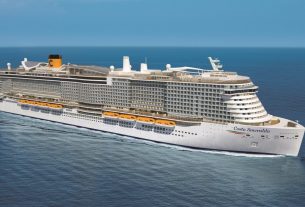After last year’s ban on short-term rentals in New York City, reports showed “staggering growth” in neighboring cities like New Jersey. Clearly, consumer appetite for short-term rentals remains high, so the travel industry should focus more attention on “second cities.”

Gareth Matthews, CMO at global travel distribution provider Didatravel,points out that the demand for second tier cities is driven in part by price: “This is not so much about people wanting short-term-rental properties and going to New Jersey to find them, and more about people wanting accommodation that is affordable. For companies selling lodging, having a wide range of directly sourced, competitively priced accommodation in more than just the typical well-known destinations is therefore really a big key to success. Often, the yields can be higher in second- and third-tier cities, as there isn’t as much competition.”
But the ban shows how volatile the hospitality industry can be – price fluctuations can make income more unpredictable for hoteliers. Alex Barros, Chief Marketing & Innovation Officer at hotel revenue management expert BEONx says the key is in diversification. “Based on what we’ve seen, the ban in New York City has driven up its hotel prices – perhaps in surrounding regions too. Hoteliers need to be aware of this as bans happen in real time, being prepared for sudden market changes can help inform pricing strategies in advance. And this could work the other way too: if a ban is lifted, hotel prices are likely to fall again. These price fluctuations make it more difficult to rely on income from room rates alone, hoteliers should position their properties as more than just a place to stay – offering other guest services that can increase revenues, like food and beverage, or unique experiences.”
As a final thought, tapping into this theme, Manuel Núñez from Servantrip, a leading B2B hub for tours & activities used by travel agents and tour operators, points out that when it comes to second or third tier cities people don’t just want accommodation – they also want something to do when there. “Offering tours & activities as an ancillary option not only gives the intermediary a commission, but in many cases can also make or break a sale in a retail environment and even online if you can package it well. Make sure that your suppliers of experiences have a wide geographic range of options, too often they’re just focused on the obvious cities and products.” comments Manuel.





